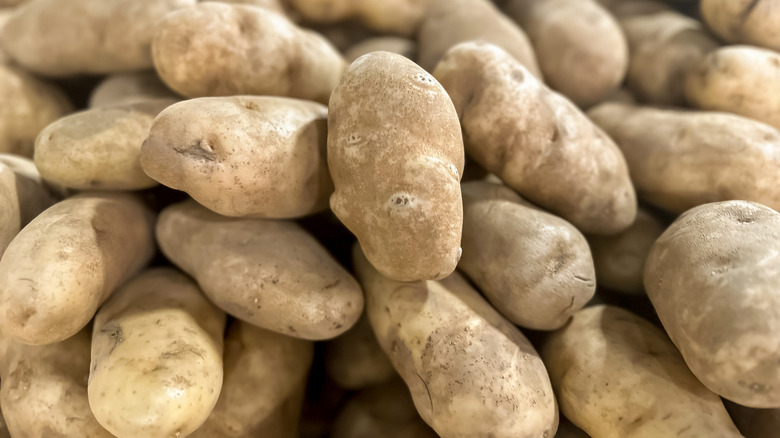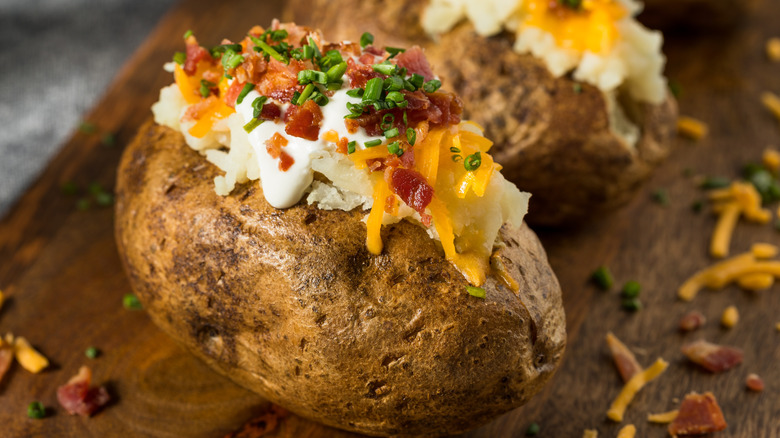How Long It Really Takes To Overcook A Potato (And How To Avoid It)
We may receive a commission on purchases made from links.
While there may be certain dishes that need precise cooks, measurements, and a lot of kitchen knowledge, like a perfectly cooked risotto or a blackberry and pine nut cheesecake that's deliciously fluffy, a baked potato is easy, right? You just have to toss it in the oven and let the heat do its job. Well, it turns out that you can overcook a baked potato, and it's pretty easy to get it wrong. But to make sure it doesn't get dry and mealy, you just need a little vigilance.
Speaking exclusively with Chowhound, Stephanie Loaiza, one of the sisters of the famed Six Sisters' Stuff blog and cookbook series, including the new "30-Minute Meals with Six Sisters' Stuff," says, "It is absolutely possible to overcook a baked potato. Depending on the size and shape, a potato can take anywhere from 45 minutes to just over an hour to cook in the oven at around 400 degrees [Fahrenheit]."
The Six Sisters may be kitchen masters, but they offer simple, solid advice that's easy to follow. Like with baked potatoes. "If cooked for too long," Loaiza says, "potatoes tend to become dry and crumbly, as they will lose most of their moisture. On the outside, signs of overcooking may be wrinkly skin or a dark brown spot on the bottom." You just need to keep an eye on your potatoes and know the appropriate look and feel of when they're finished, so they don't go from nice and fluffy to entirely overdone.
How to make a perfectly fluffy baked potato
As Stephanie Loaiza said, a good cook for a potato is about 45 minutes to an hour at 400 degrees Fahrenheit. Potatoes around 8 ounces will work great. Russet potatoes are usually the best choice for baked because their high starch content will make them come out light and airy and not chunky or steamed. And here is where the vigilance comes in. "To make sure that it is done, but not overcooked," Loaiza says, "you can test it by piercing it with a fork or squeezing it. A properly cooked potato should be easily pierced with a fork or slightly soft when squeezed."
You want a baked potato that's cooked but not deflated or squishy. The overall structure should still be relatively firm and not too wrinkly with the skin separating from the interior (a sign that it's lost too much moisture). You can also use a kitchen thermometer to test the potato — the interior of a properly baked potato should be 205 degrees Fahrenheit.
For more flavor and super crispy skin, try rubbing your potatoes in olive oil and adding a sprinkle of salt. This trick works with or without an aluminum foil wrapper, and the potatoes should be repeatedly pierced with a fork before cooking to impart the delicious oil and salt flavor on the inside. You can even use this method on the grill with foil-wrapped potatoes cooked over medium direct heat and rotated every 15 minutes or so to get an even cook. When it comes to piling on the accoutrements, a little butter and salt will work fine, but there are a number of ingredients to take your basic baked potato to the next level. Just be sure to keep a close eye on the spud so it doesn't end up overcooked.

